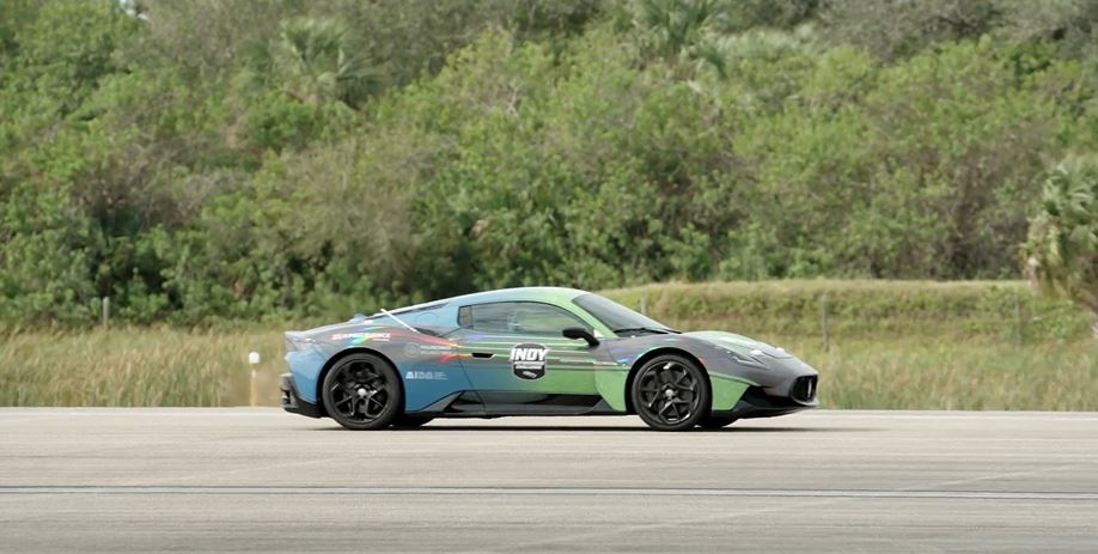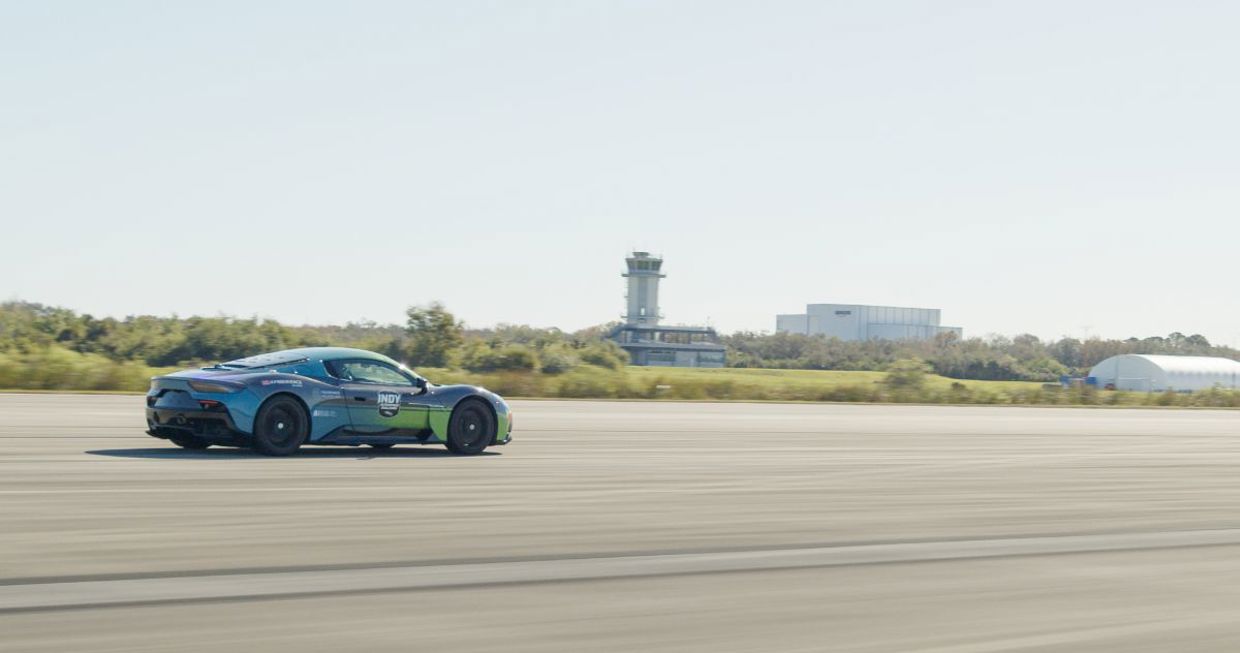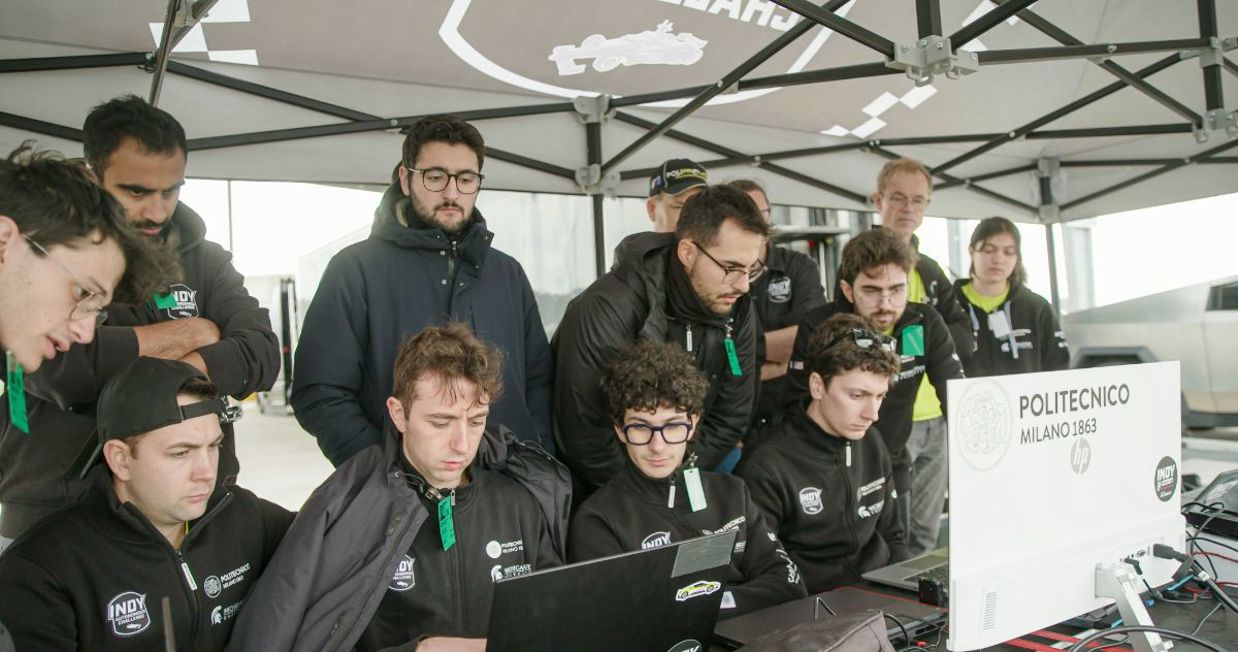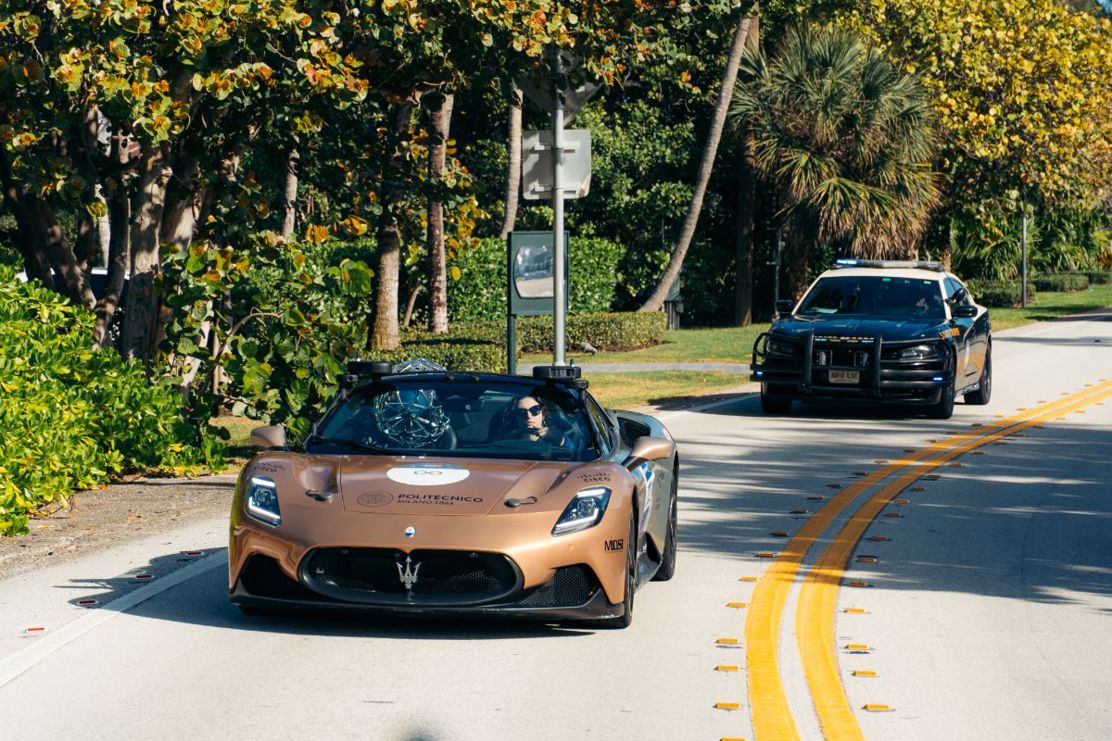An organisation dedicated to making self-driving cars go fast and an Italian university have collaborated to set a new World Speed Record for an autonomous vehicle.

Indy Autonomous Challenge (IAC) is "dedicated to advancing autonomous technologies through high-speed racing". It organises competitions among 10 university-affiliated teams from around the world, challenging them to programme AI drivers to pilot fully autonomous racing cars.
Politecnico di Milano, meanwhile, is Italy’s largest scientific-technological university.
The two have used a Maserati to set the new record at the Space Florida Launch and Landing Facility (LLF), one of the world’s longest runways at 4.5km and the historic location for NASA Space Shuttle landings. LLF is now a hub for aerospace research and testing.

The Maserati MC20 coupe of IAC, piloted by a physical "robo-driver" from the Politecnico di Milano, previously held the record for the fastest autonomous production car, reaching 285km/h at the Piacenza Military Airport track in November 2024.
The same vehicle, modified to run autonomously with AI by PoliMOVE-MSU team (part of the Artificial Intelligence Driving Autonomous division of Politecnico di Milano) reached 318km/h at LLF autonomously, with no human driver on board.

This surpasses the previously held "absolute record for an autonomous car" of 310km/h, set by IAC and PoliMOVE at the same location in April 2022 with an IAC AV-21 racecar.
“These world speed records are much more than just a showcase of future technology; we are pushing AI-driver software and robotics hardware to the absolute edge," says Paul Mitchell, CEO of IAC.

"Doing so with a street car is helping transition the learnings of autonomous racing to enable safe, secure, sustainable, high-speed autonomous mobility on highways."
Once the record-breaking test was completed, a second Maserati MC20 Cielo convertible joined the convoy of the 1000 Miglia Experience Florida. This vehicle, from the Politecnico di Milano, has already been a key participant in the 2023 edition of the historical 1000 Miglia race, where it covered approximately 60km in autonomous mode across Italy.



